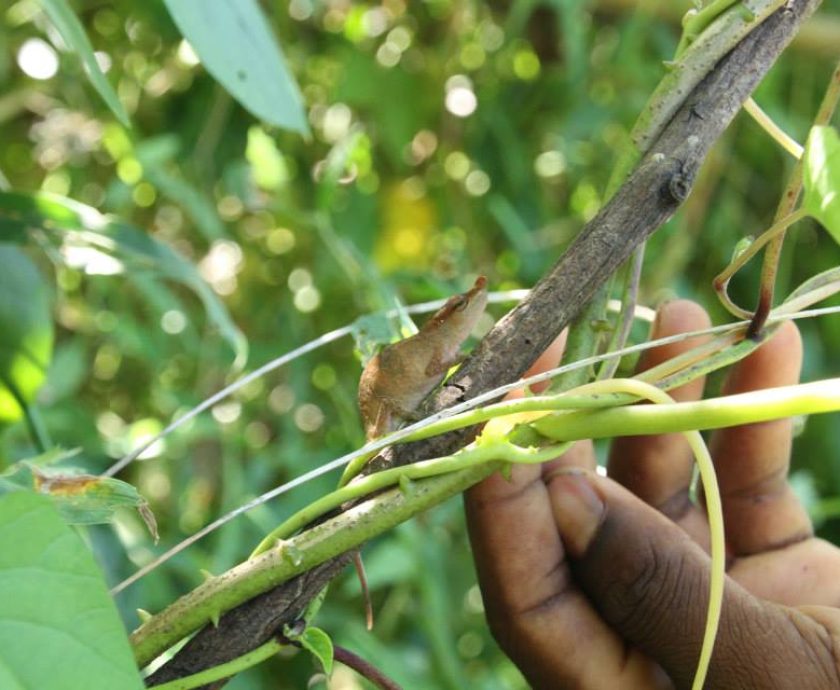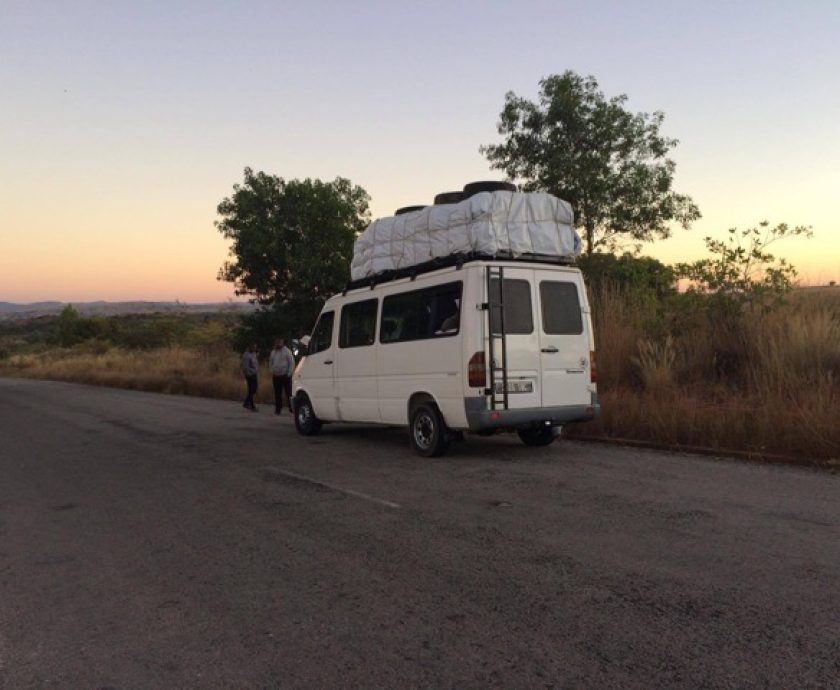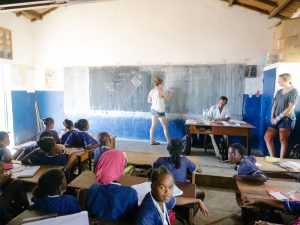 Every couple of months we hold an Environmental Day in the classes our volunteers teach. We always pick an appropriate topic and this time around we decided to talk about flat batteries and how they can negatively influence the ocean and forest.
Every couple of months we hold an Environmental Day in the classes our volunteers teach. We always pick an appropriate topic and this time around we decided to talk about flat batteries and how they can negatively influence the ocean and forest.
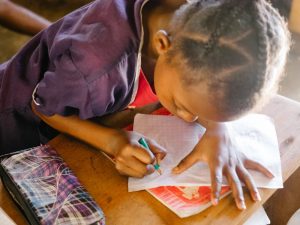 During the first part of class, we explained the impact of the dead batteries on the environment, drew some pictures, taught new words and practiced grammar with sentences like: “I don’t like dead batteries, we don’t like dead batteries”, and so on.
During the first part of class, we explained the impact of the dead batteries on the environment, drew some pictures, taught new words and practiced grammar with sentences like: “I don’t like dead batteries, we don’t like dead batteries”, and so on.
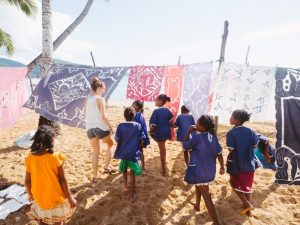 During the second part of the class, we asked learners to join us in collecting dead batteries from the area surrounding the school and the beach. The kids loved it, and so did we.
During the second part of the class, we asked learners to join us in collecting dead batteries from the area surrounding the school and the beach. The kids loved it, and so did we.
We collected roughly 10 kilograms of batteries (5 full bags) from all the schools we teach at on Nosy Komba. Madagascar does not have the appropriate facilities to deal with the disposal of batteries, so you might ask: “What happens next?”
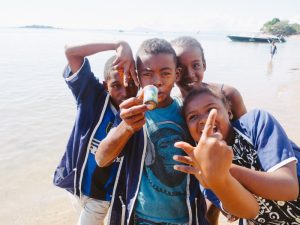 We brought all the bags of batteries back to our camp and made little paper envelopes to put a few batteries in. Whenever a volunteer leaves the camp, we ask them to take a bag or two with them, to dispose of it properly once at home.
We brought all the bags of batteries back to our camp and made little paper envelopes to put a few batteries in. Whenever a volunteer leaves the camp, we ask them to take a bag or two with them, to dispose of it properly once at home.
Did you know?
Batteries are recognized as being a problem material in the waste stream. They are made from a variety of chemicals to power their reactions. Some of these chemicals, such as nickel and cadmium, are extremely toxic and can cause harm to 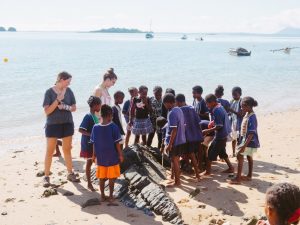 humans and the environment. In particular, they can cause soil and water pollution and endanger wildlife. For example, cadmium causes damage to soil micro-organisms which affects the breakdown of organic matter. It can also bio-accumulate in fish, not only making them unfit for human consumption but also reducing their numbers.
humans and the environment. In particular, they can cause soil and water pollution and endanger wildlife. For example, cadmium causes damage to soil micro-organisms which affects the breakdown of organic matter. It can also bio-accumulate in fish, not only making them unfit for human consumption but also reducing their numbers.
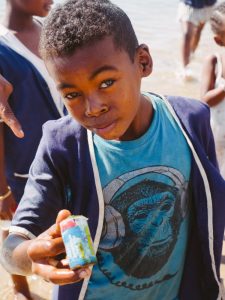 We know that nobody can do everything, but everyone can do something and by helping in this small way, we believe we can improve the environment that we are a part of, as well improving the lives of the next generation.
We know that nobody can do everything, but everyone can do something and by helping in this small way, we believe we can improve the environment that we are a part of, as well improving the lives of the next generation.




